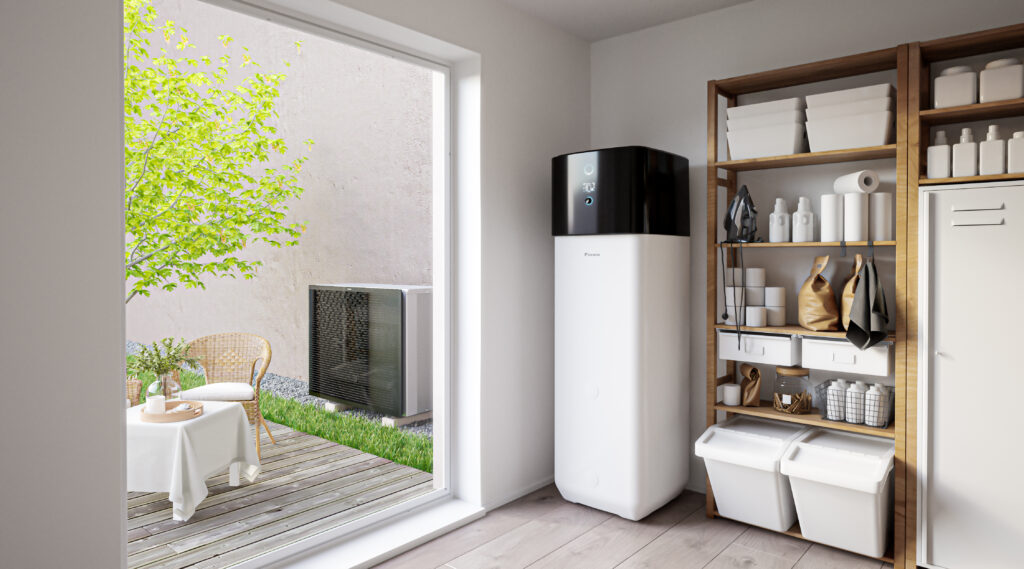The cost of electricity could cause the rollout of heat pumps to fail, as the technology must be made affordable for consumers.
With the cost of electricity roughly four times more expensive than gas, due to the government placing the costs of its low carbon policy with customers, adoption of the green heating alternative may struggle, according to a letter to energy minister Kwasi Kwarteng.
Written by the Chairman of the Environmental Audit Committee (EAC), Rt Hon Philip Dunne MP, the letter reflects on the evidence heard by the Committee during its short inquiry on Technological Innovations and Climate Change: Heat pumps.
The Committee was advised that reviewing the policy costs for gas and electricity could significantly improve the customer case for heat pumps, helping to make them cheaper than conventional gas boilers in a domestic setting.
Beyond cost concerns, the Committee heard through written evidence and a one-off evidence session that the supply chain is not currently equipped to installed the numbers of heat pumps required. To make sure the rollout happens, sufficient production and high-quality installations will be key.
While the initial growth of heat pump installers are expected to come from reskilling existing gas and electrical engineers, a concerted attempt to bring new, skilled entrants into the market over time. The government should fund a dedicated training programme, supporting education and training as part of a long-term strategy, suggested the EAC.
The uptake of heat pumps will be supported by the Green Homes Grant initially, but further confidence will need to be provided to industry to allow it to invest in skills and resources given the short window of time the scheme is expected to run for. The government should extend the grant beyond March 2022, making it a multi-year scheme.
Dunne said: “We are in an exciting and innovative time with new technologies coming to market that can make our net zero ambition a reality. But the scale of the challenge is huge, and requires government to set clear direction to instill industry confidence.
“Heat pumps could be transformative in decarbonising heating in our homes, and with homes emitting 20% of the UK’s greenhouse gases, it is a problem we need to meet head-on. Only when the supply chain is equipped to deliver the roll-out of 600,000 heat pumps a year, and costs are brought down for consumers, will we see heat pumps being a staple for many UK homes.”
The letter follows the government’s target of 600,000 heat pump installations a year by 2028, announced as part of the Ten Point Plan in October. The target was particularly welcomed following analysis from the UK Energy Research Centre that suggested it would take the UK 700 years to transition to low-carbon heating.
Charles Wood, Energy UK’s head of new energy services and heat, agreed that the EAC was right to highlight the significant barriers for the nascent heat pump sector, adding that “the low carbon heat market is most in need of clear signals from government in order to justify investment, and the 600,000 installation target is a positive move in that direction”.
“Government now needs to follow this broad vision with a strategy for delivery in the 2020s. Bringing down the associated costs for low carbon heat technologies while delivering local growth, for example through developing local supply chains and increasing the number of skilled installers, is critical to giving customers the ability to choose how and when to decarbonise.
“This has to be joined with regulation, taxation and incentives in order to deliver rapid market growth towards net zero.”





